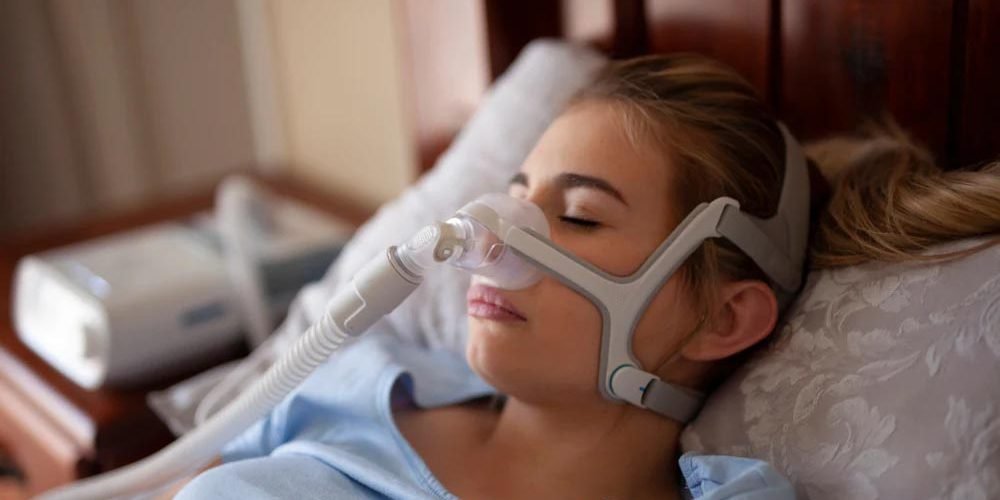CPAP (continuous positive airway pressure) machines are devices that provide a continuous flow of air through a mask worn over the nose or mouth. They are commonly prescribed for patients with sleep apnea, a condition where breathing repeatedly stops during sleep, causing interrupted sleep and daytime drowsiness.
The devices provide continuous positive airway pressure therapy to patients suffering from obstructive sleep apnea by delivering pressurized air through a nasal mask or full face mask to prevent the upper airways from collapsing. This prevents the patient from choking on their tongue or soft palate and reduces snoring.
Table of Contents
How a CPAP Machine Works
The CPAP machine has a motor or compressor that generates continuous pressurized air that pushes against any blockages and opens your airways to allow your lungs to receive large amounts of oxygen. This purified air is delivered into a CPAP mask worn around your mouth or nose. Without oxygen flow blockage, you get a restful night free of repeated waking up to resume breathing.
Types of CPAP Machines
All CPAP machines have the same components. They have a base unit that houses the motor, a cushioned mask like the rapid CPAP mask, a headgear frame, joints or elbow pieces, a tube connecting the CPAP mask and motor, and straps that enable you to adjust the device’s fit. However, there are different types of CPAP masks.
- Nasal masks: are cushioned CPAP masks that cover your nose completely and are ideal for people who move in their sleep. They also deliver high airstream pressure.
- Nasal pillow mask: this mask has a small cushion for your nose area with prongs for the ideal fit and allows you to wear glasses easily. It’s also ideal for patients with a lot of facial hair that prevents a snug fit.
- Full mask: this triangle-shaped CPAP mask covers the mouth and nose. It is prescribed for patients who breathe through the mouth while sleeping or have nose blockages.
Pros and Cons of Using CPAP Machines
Pros
- Improves your sleep: CPAP masks prevent breathing interruptions while sleeping by supplying a continuous oxygen supply to your lungs, improving sleep. This can be especially helpful if you use a CPAP power supply on a camping trip or excursion.
- Lowers blood pressure
- Minimizes daytime drowsiness
- Reduces the risk of stroke, heart attack, and other cardiovascular issues
- Lowers cholesterol and blood glucose levels
Cons
- Causes claustrophobia or anxiety
- Dry mouth
- Difficulty falling asleep and discomfort during the early stages of using it
- Nasal blockage and congestion
- A bloated feeling
- Skin irritation where the skin comes into contact with the mask
- Nose Bleeding
Does Insurance Cover CPAP Machines?
Sleep apnea patients enrolled in Medicare Part B might enjoy a cover of 80% of the cost of the CPAP mask if the prescribing doctor is an approved Medicare provider. However, you will have to pay the remaining 20% of the machine and your deductible, whether buying or renting it.
For Medicare Part C patients, you need to check the guidelines for renting or purchasing medical equipment in your plan. However, without insurance, you can spend between $500 and $3,000, depending on the CPAP machine you choose.
Conclusion
The main goal of CPAP masks is to provide a stream of air directly into the patient’s nose and mouth throughout the night, keeping the airways open and preventing them from collapsing. This makes it an ideal sleep partner for sleep apnea patients.





